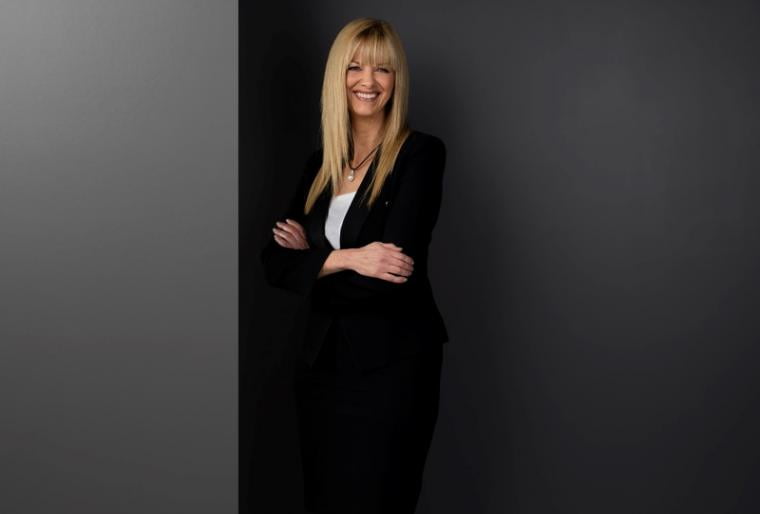The coronavirus pandemic is having a huge impact on the way employees work, and some of the changes have produced a positive return not just on productivity but work-life balance as well. Time will tell whether those changes become permanently stamped on work culture in the long-term.
But the bigger impact for companies and for governments will likely be structural. The shock of supply-chain interruptions cannot be ignored and businesses and national governments will be looking for strategies to safeguard against similar shocks in future.
The Australia Israel Chamber of Commerce this week presents a webinar featuring Sydney-based One Ventures co-founder and managing partner Michelle Deaker, and Israel-based Viola Ventures general partner Ronen Nir that explores the short-term organisation impacts of coronavirus and picks apart which of the megatrends might become the new normal.

You can register for the Tuesday May 5 webinar here.
The Australian and Israel startup ecosystems are very different, but the challenges they face are common, and the shared experience of the venture sectors are more aligned than is immediately obvious.
This webinar aims to bring to the surface insights into a fast-moving problem, and the way that the two separate but connected ecosystems have responded.
While not discounting the broader impact of COVID, Michelle Deaker says the One Ventures’ portfolio companies were fortunate in the timing of the crisis. And she is optimistic about the tech and health sectors.
“We thought valuations were pretty frothy [last year] and we thought that we might be in for a US-China trade war, so we had pushed our portfolio companies to try to get adequately capitalised. And many of them did, which was fortunate,” Dr Deaker told InnovationAus.
“We were lucky, but this might apply to healthcare and to tech more generally, as not many of our companies were as affected as the broader community,” he said.
“Coming out of the last recession, technology and healthcare tended to perform better – and out of the Global Financial Crisis as well – and I think we will see the same thing this time.”
Ronen Nir said the behaviours that have been influenced by coronavirus are being closely watched by businesses and governments alike to better understand how the changes can be harnessed for long-term advantage.
“What we are experiencing right now is the largest ever labour market experiment that was ever done,” Mr Nir said.
“In terms of high tech, and definitely in terms of Israel, the short-term impact (to industry) is positive,” he said. “First of all we have people reporting that they have gained an hour or two of commute, they can concentrate more and they get more work done. That’s on the positive side.”
“On the negative, they miss the coffee breaks and the office talk that can be very productive in [professional] learning. But we still need to see the long term affects, whether people will feel the same way in 6 months or 12 months from now.”
As a short-term experiment, it has been a very interesting one and has investors and governments alike watching closely to see the impact on everything from the office rental markets to public transport to air quality.
Even when the bans on returning to work or socialising is lifted, Mr Nir said it will still take some time “to understand whether or not we have really entered a new twenty-first century work mode” or whether behaviours and practices that pre-date the pandemic are returned
From a national perspective, there is a rethink about how we organise supply chains, both Dr Deaker and Mr Nir said.
“As a country, we are looking more closely at where we want to invest. Australia decided for many years that we didn’t need certain industries and that we could just access [our needs] from offshore,” Dr Deaker said.
“Australia is now having a rethink around what it is that we need in terms of critical infrastructure, like energy and pharmaceuticals, and we have no real onshore manufacturing here – we have just sort of outsourced that,” she said.
“Now that we have had these big impacts in global supply chains in business, you realise that maybe it’s not such a great idea to rely so much on global supply.”
Mr Nir said the countries and governments decide what can and cannot be produced locally to buffer their own economies, but the reality is that for countries like Australia and Israel, individual nations simply can’t do everything.
“The focus can’t be on doing everything onshore because that it impossible,” Mr Nir said.
“But maybe there will be more interest in having different levels of inventory and looking at how you manage that inventory and distribute it in a time of crisis.”
Adding to the complexity of the pandemic is the lingering and real threat of escalating tensions between the United States and China.
There is agreement on several sobering dot-points. We are heading for recession for sure, and depression maybe. As long as these preconditions do not cause a financial crisis, then there is an end to the crisis in sight – but it will take a while.
The current thinking is that this is a two-year process, and portfolio companies have warned to buckle in for two years. Full recovery will simply take time.
“Look how long it took to come out of the GFC,” Michelle Deaker says.
The Australia Israel Chamber of Commerce welcomes registrations to this webinar with Michelle Deaker and Ronen Nir by clicking here.
Do you know more? Contact James Riley via Email.

